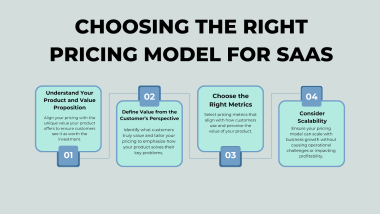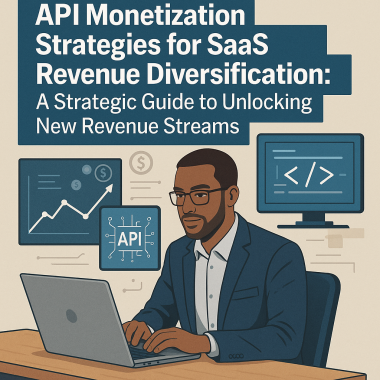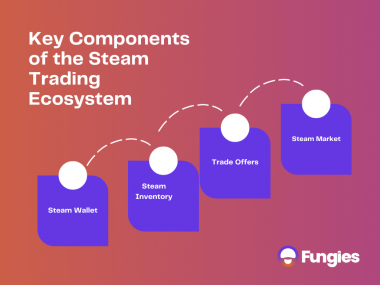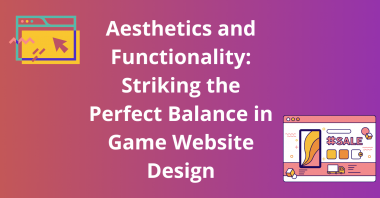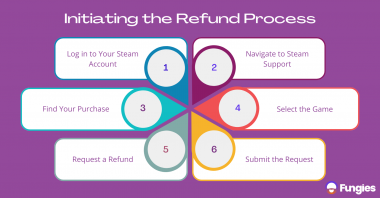Picking the Perfect Website for Your Game
When it comes to indie game development, your digital front door – aka your website – is super important. It’s where your game says hello to the world. But here’s the big question: should you go for a single page website that’s all about simplicity, or a more detailed multi-page site? This choice is more than just about looks; it impacts how players interact with and perceive your game. So it’s one of the most crucial issues when you want to create a game website.
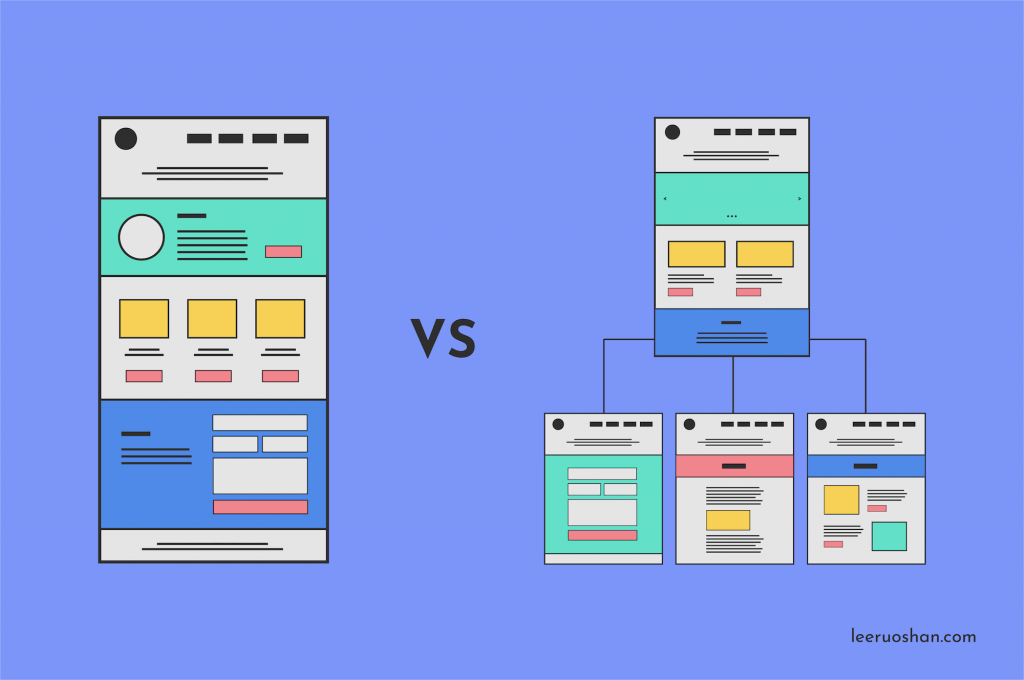
Why Your Game Needs a Great Website
Think of your website as your game’s virtual billboard. It’s where the magic begins for potential players. A well-crafted website not only grabs attention but also offers all the juicy details about your game, playing a huge role in your marketing effort.
Understanding Single Page Websites
We’ve talked about the cool, clean look of single page websites before. They’re sleek, easy to navigate, and can make a big splash with just one scroll. But let’s have one more look at it and why this might be the perfect choice for your indie game.
What’s a Single Page Website Anyway?
Picture this: all your game’s info, beautifully laid out on one single, scrollable page. No clicking around to different pages – just a smooth, straight shot of everything your game is about.
Why Single Page Sites Rock for Games
For games that want to tell a story or create a vibe right off the bat, single page websites are perfect. They keep the user’s journey simple and immersive, much like a good game does keeping the user engaged from start to finish without the distractions of navigating through multiple pages.
Exploring the World of Multi-Page Websites
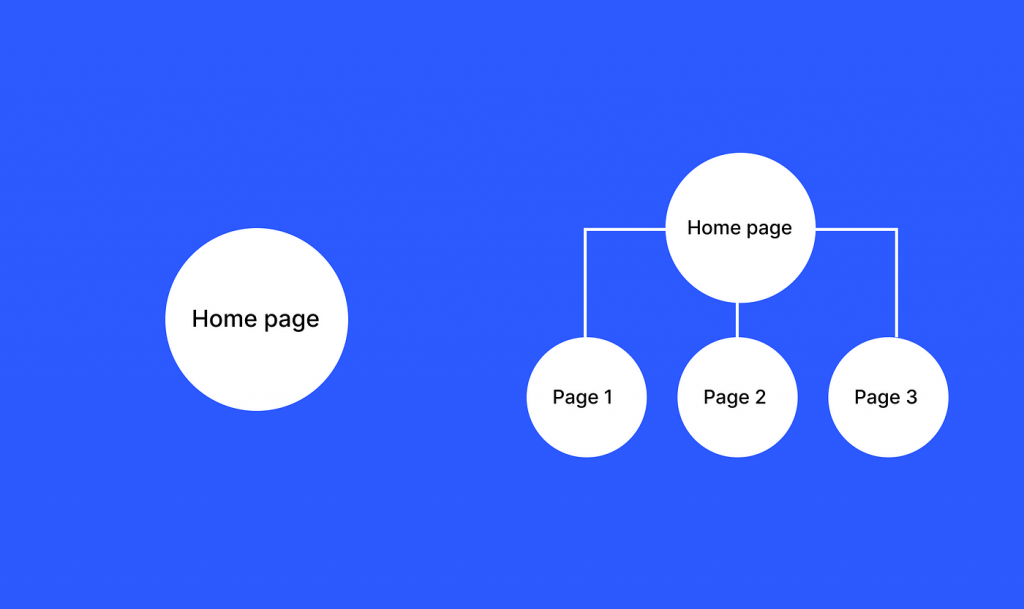
But hey, single page sites aren’t the only game in town. Sometimes, you need a bit more room to talk about your game, and that’s where multi-page websites come into play.
Multi-Page Websites Explained
These are your traditional websites with different pages for different kinds of content – like Home, About, Gallery, Contact, etc. They offer a familiar way to explore deeper into what your game offers.
When More is More – The Case for Multi-Page Sites
For games with a lot of layers – like a bunch of different levels or a rich backstory – a multi-page website gives the space to dive into all that detail without cramping the design.
Advantages of Single Page Websites for Your Indie Game
Single page websites are a win for indie game developers looking to make an impact online without the hassle. They’re user-friendly, mobile-optimized, and easy to keep up-to-date.
Simplicity at Its Best – Smooth & Simple

Straightforward Design
Single page sites take the simplicity route, offering a clean, uncluttered experience. Everything about your game is laid out in a single, flowing page, making it super easy for visitors to get the full scoop without getting lost in navigation.
Engagement and Focus
By having all your content in one place, you’re keeping things focused. Your audience won’t be distracted by having to click through multiple pages. Instead, they’ll follow a smooth journey from start to finish, absorbing everything about your game in one go.
Mobile Magic – Perfect for On-the-Go Gaming Fans
Seamless on Every Screen

Let’s face it, a lot of your audience is browsing on their phones. Single page sites are great because they adapt flawlessly to different screen sizes. This means your game’s website is going to look awesome whether it’s viewed on a tiny phone or a huge monitor.
Quick to Load, Quick to Impress
On mobile, every second counts. Single page websites generally load faster. Fast loading equals happy visitors who stick around to learn more about your game.
Maintenance Made Easy – Less Hassle, More Gaming
Low Maintenance, High Reward
When you’re busy coding and crafting your game, the last thing you need is a high-maintenance website. That’s where single page sites shine. They’re a breeze to update – whether it’s tweaking the design or adding the latest news about your game, you’re in and out in no time.
Budget-Friendly
Not only do single page sites save you time, but they’re also kinder to your wallet. They’re less complex to build and manage, meaning you can put more of your resources into developing your indie game, rather than sinking them into a complicated website.
The Flip Side of Single Page Websites
If single page websites were just right for every game we wouldn’t be having this post. Of course, they have their quirks, especially when it comes to SEO, content balance, and navigation
Navigating SEO Challenges
One tricky part of single page sites is SEO. With less content, you might have to work harder to get noticed by search engines. This means you’ve got to be extra clever with your SEO game.
Balancing Your Content
It’s a bit of a tightrope walk – packing in all your game info without making your page feel like a never-ending scroll. Your content needs to be just right. Share enough about your game to entice and engage, but keep it concise to avoid information overload.
Navigating the Long Scroll

And speaking of scrolling, you’ll want to make sure that users can easily find what they’re looking for without getting lost in a sea of content.
Why Multi-Page Websites Can Be Awesome Too
Multi-page websites are fantastic for showcasing the many facets of your indie game. They offer robust SEO potential, clear navigation, and the freedom to get creative with your design. Each page is a chance to explore a new aspect of your game’s world, making sure your audience gets the full picture.
SEO Superstars – Making Your Game Shine Online
A Buffet for Search Engines
Think of each page on your multi-page site as a new opportunity to catch the eye of search engines. With more pages, you’ve got more content, and that means more chances to use those all-important keywords.
Climbing the SEO Ladder
Each page can be optimized for different aspects of your game. Maybe one page focuses on the storyline, another on gameplay mechanics, and another on the development journey. This variety not only spices up your site but also helps your game climb up those search rankings.
Organized and User-Friendly
Easy to Navigate
With a multi-page layout, your users won’t get lost in a sea of information. Each page has a clear focus, so users can quickly hop to what interests them – be it the latest updates, FAQs, or behind-the-scenes looks.
Categories for Clarity
Breaking down your content into different pages helps keep everything tidy and digestible. It’s like having a well-organized toolbox where every tool has its place, making it super easy for users to find exactly what they need.
Flexing Creative Muscles

Design Diversity
Multi-page websites are like having multiple canvases to paint on. You can tailor the design of each page to fit its content. Maybe the character bio page has a different vibe compared to the gallery page. This keeps things interesting and visually engaging.
Feature Freedom
With more pages, you’ve got room to experiment. Want to add a forum on one page and a cool interactive timeline on another? Go for it! Multi-page sites allow for diverse features and functionalities, giving each aspect of your game the spotlight it deserves.
Multi-Page Sites Have Their Downsides
While multi-page websites offer great opportunities to showcase different aspects of your game, they come with their own set of challenges. Complex navigation can confuse visitors, more content can mean more maintenance work, and the risk of information overload is real.
Complex Navigation
With tons of pages, users might feel like they’re wandering around trying to find what they need. A confusing menu or poor site structure can leave them lost and frustrated.
The Workload – More Pages, More Hustle
With a multi-page site, your to-do list just got longer. Each page needs attention, updates, and regular maintenance. Regular check-ins on each page for updates or tweaks can be time-consuming.
Avoiding Information Overload

More space is great, but it can be tempting to fill every nook and cranny with content. However, too much information can be overwhelming. Your visitors might end up not knowing where to focus.
Budgeting for Your Website: Finding the Right Fit Financially
Choosing between a single page or a multi-page site isn’t just a design decision; it’s also a financial one. For indie developers working with limited resources, it’s important to weigh the cost benefits of a simpler, more affordable single page site against the expanded capabilities (and expenses) of a multi-page site. Whichever path you choose, ensure it aligns with both your creative vision and your budgetary constraints, setting you up for online success without breaking the bank.
Cost-Effective Single Page Sites
Affordability of Single Page Sites
When your budget is more indie than blockbuster, single page websites can be a real lifesaver. They’re typically less expensive to develop since you’re focusing on creating and styling just one page, rather than several.
Lower Ongoing Costs
Not only are they generally cheaper to set up, but single page sites also tend to be easier on your wallet in the long run. With fewer pages to manage and update, you’re looking at reduced costs for website maintenance and updates. This means more of your budget can stay focused on developing your game.
Navigating the Costs of Multi-Page Sites
Understanding the Investment
Multi-page sites often require a larger initial investment. Each page is essentially its own project, needing design, content, and optimization. This can add up, especially if you’re looking to create a highly detailed and interactive experience.
Ongoing Maintenance Costs
It’s not just the setup costs you need to think about. Multi-page sites typically need more regular maintenance and updates. Whether it’s fixing bugs, updating content, or adding new sections, the costs can grow over time.
Budgeting for the Long Haul
If a multi-page site is the best fit for your game, it’s crucial to plan your budget for both the short and long term. This means allocating funds not just for the initial build but also for ongoing updates and maintenance to keep your site in top shape.

Picking the Right Tools for Your Website
Whether you’re building a sleek single page site or an expansive multi-page one, the right tools can make all the difference. For single page sites, focus on simplicity and gaming-specific features. For multi-page sites, prioritize customization, SEO capabilities, and content versatility.
Building Single Page Sites – Finding the Perfect Website Builder
Choosing the Ideal Builder
When it comes to creating a single page website for your game, picking the right website builder is key. You’ll want one that’s not just user-friendly, but also specialized in crafting standout single page designs. Look for builders that offer intuitive drag-and-drop interfaces – they make designing a breeze, even if you’re not a coding wizard.
Gaming-Friendly Features
Since it’s all about showcasing your game, find a builder that offers gaming-centric features. This could include templates designed specifically for gaming websites, easy integration for trailers and demos, or customizable sections to highlight your game’s unique features.
Speed and Optimization
Given that single page sites need to load quickly, opt for a website builder that ensures fast loading times and smooth performance. This is crucial for keeping potential players engaged.
Choosing a Builder for Multi-Page Sites – More Features, More Flexibility

Customization is Key
For a multi-page site, the need for customization skyrockets. Your chosen website builder should offer a wide range of design options to cater to the different types of content you’ll be showcasing – from character bios to gameplay mechanics.
Robust SEO Tools
SEO becomes even more important with multi-page sites. Pick a builder that comes packed with solid SEO tools. These can include options for meta tags, custom URLs, and easy-to-integrate blog platforms, all of which can help boost your site’s visibility in search engines.
Handling Diverse Content Types
Your game is a world of its own, and your website should reflect that. The builder you choose should be capable of handling various content types – be it text, images, videos, or interactive elements. This versatility is crucial for keeping each page of your site as engaging and immersive as your game itself.
Making the Decision – Choosing Between Single or Multi-Page Websites
Choosing between a single page and a multi-page website boils down to understanding your game’s core, knowing your audience, and aligning with your overall goals and strategies. Each option has its unique strengths and can effectively support your game’s online presence when chosen for the right reasons. So, take the time to weigh your options, and pick the path that best suits your game’s journey to success.
Reflecting on Your Game’s Essence
Understanding Your Game
The first step in making this decision is to take a deep dive into what your game is all about. Is it a straightforward, action-packed title with a clear and direct appeal, or is it a complex narrative-driven game that requires more detailed explanations? The nature of your game can greatly influence whether a single page or multi-page site is more suitable.
Tailoring the Experience
If your game is all about quick, engaging play with a simple storyline, a single page site might capture this spirit perfectly. On the other hand, if your game is rich in lore, characters, and worlds, a multi-page site can give each of these elements the space and attention they deserve.
Knowing Your Audience

Consider Your Players
Who are your players, and what kind of online experience do they expect? A younger, more internet-savvy audience might appreciate the sleekness and speed of a single page site. In contrast, hardcore gamers who are used to delving deep into content might prefer a multi-page site where they can explore every aspect of the game world.
Meeting Player Expectations
Your website should meet your audience’s expectations and provide them with the information and experience they seek. This can be a decisive factor in choosing the right type of website.
Aligning with Your Goals
Your Marketing Strategy
Think about what you want to achieve with your website. Is it mainly for marketing and attracting attention, or is it a hub for a growing community of players? A single page website can be great for creating buzz and driving game downloads, while a multi-page site can serve as a comprehensive platform for community engagement, support, and detailed game guides.
Long-Term Vision
Consider your long-term vision for your game. If you plan to expand your game with more content, updates, or sequels, a multi-page website can grow with your game, offering the flexibility to add new sections and updates easily.
Time to Get Cracking – Elevating Your Game’s Profile
Making the Right Choice
Now that you’ve weighed the pros and cons of single and multi-page websites, it’s time to make a decision. Which format will best serve your game and resonate with your audience? This decision is a key step in taking your game from development to the spotlight.
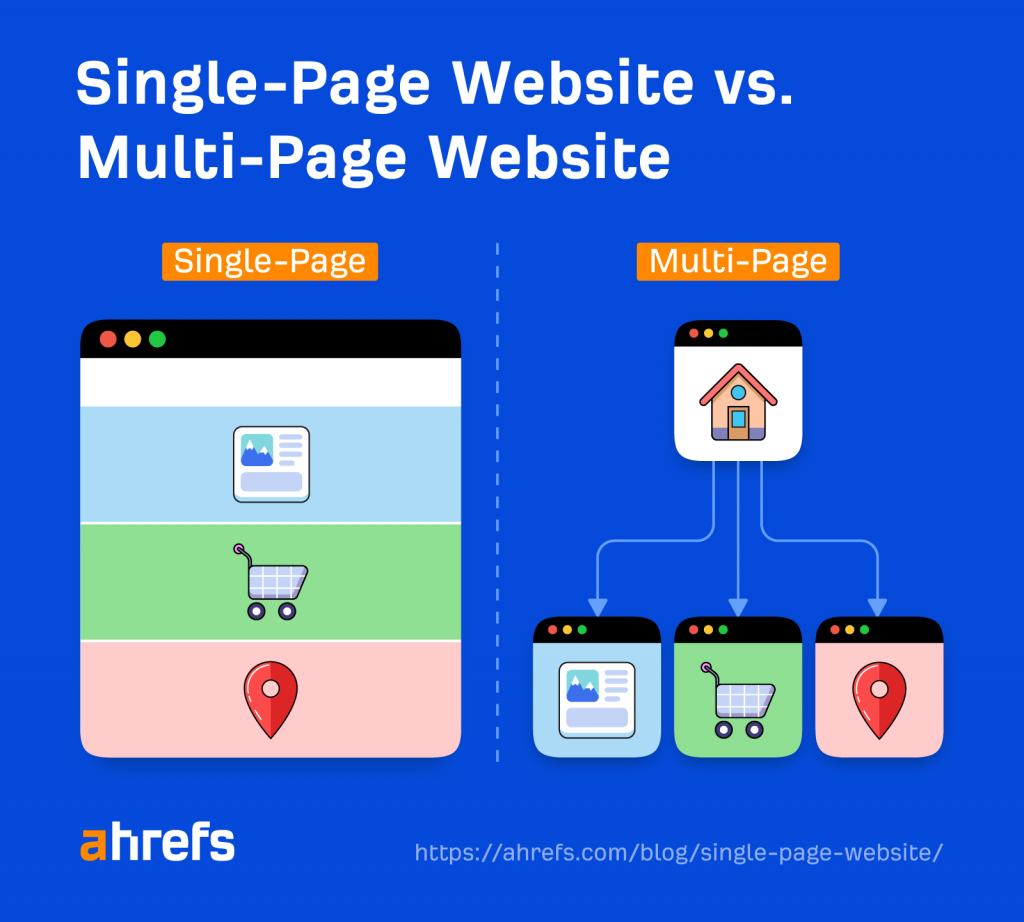
Building Your Digital Home
Your game deserves a website that’s as awesome as the game itself. Whether it’s a compact, sleek single page or an expansive, detailed multi-page site, what matters most is that it resonates with your players and brings your game to life. So, go ahead, choose the format that aligns with your vision, and start building the digital platform your game deserves. The gaming world is eager to see what you’ll bring to the table!
